
April 24, 2025
About 6 in 10 adults disapprove of how Donald Trump is handling of the economy in general, and about the same number disapprove of his handling of international trade.
Concerns about the economy and what might happen over the next few months are pervasive. Sixty-one percent are concerned about the cost of groceries and about half worry about an economic recession and the cost of big-ticket items. There is less anxiety about the availability of consumer goods in the near term.
Fifty-two percent oppose tariffs in general and 59% say the president has gone too far in the tariffs he is imposing. Seventy-six percent think Trump’s tariff policies will make the cost of consumer products higher. The public is divided over their expectations for jobs though. About 4 in 10 think the tariffs will increase jobs in the U.S. and 4 in 10 think they will decrease jobs. Half of adults think Trump’s tariff policies will lead to an increase in domestic manufacturing.
Most say their personal finances and retirement savings, the national economy, and the stock market are the cause of at least minor amount of stress. About two-thirds describe the national economy as in poor condition, similar to views in March.
However, most people see the effects of tariffs and the health of economy through a partisan lens. About 6 in 10 Republicans say the national economy is in good shape; more than 8 in 10 Democrats disagree. Three-quarters of Democrats are extremely or very concerned about a recession in the near future. Only a quarter of Republicans have the same level of concern.
Democrats are more strongly opposed to tariffs than Republicans are supportive. Eighty-two percent of Democrats oppose tariffs, including 62% who strongly oppose them. Fifty-five percent of Republicans support imposing tariffs, including 27% who strongly support the policy.
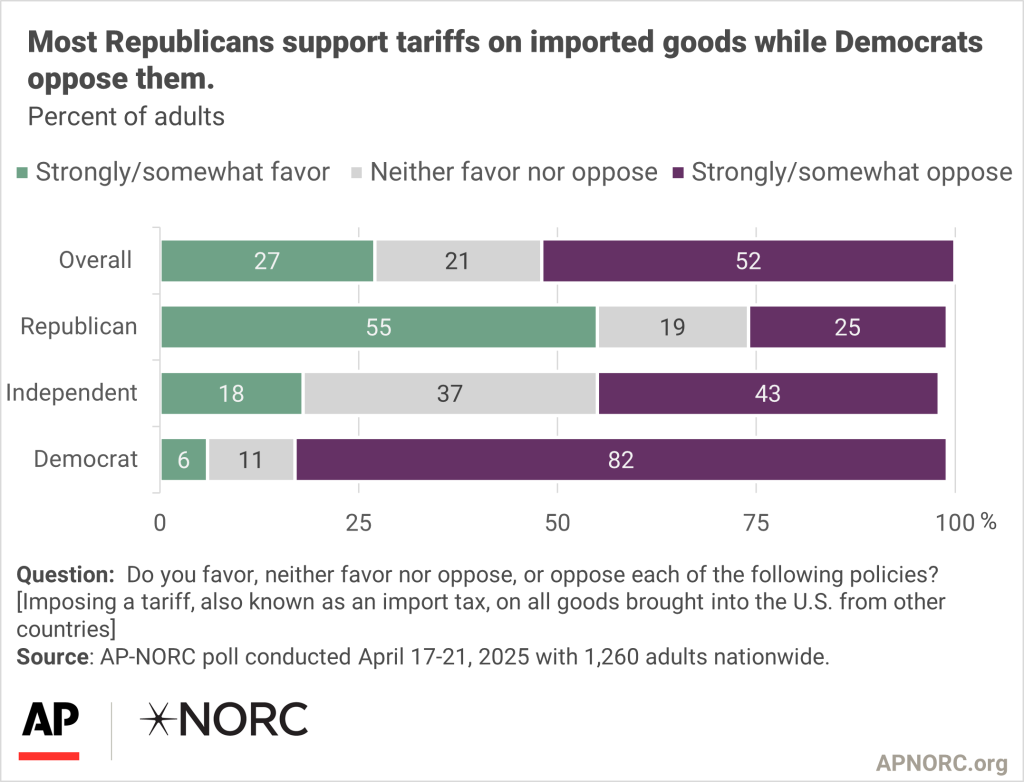
A large majority of Democrats think Trump has gone too far with his tariffs on other countries, but most Republicans think Trump’s approach is about right.
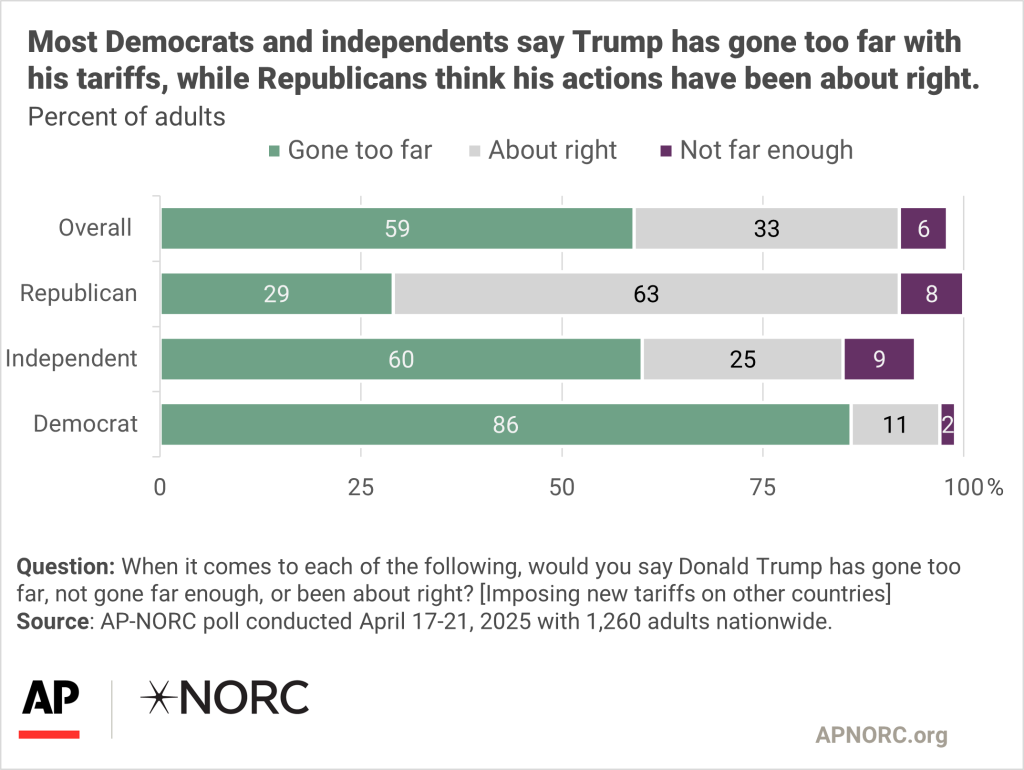
Most Democrats and Republicans expect Trump’s tariffs will lead to an increase in the cost of consumer goods in the United States. Republicans are more likely to expect positive impacts for domestic jobs and manufacturing than Democrats.
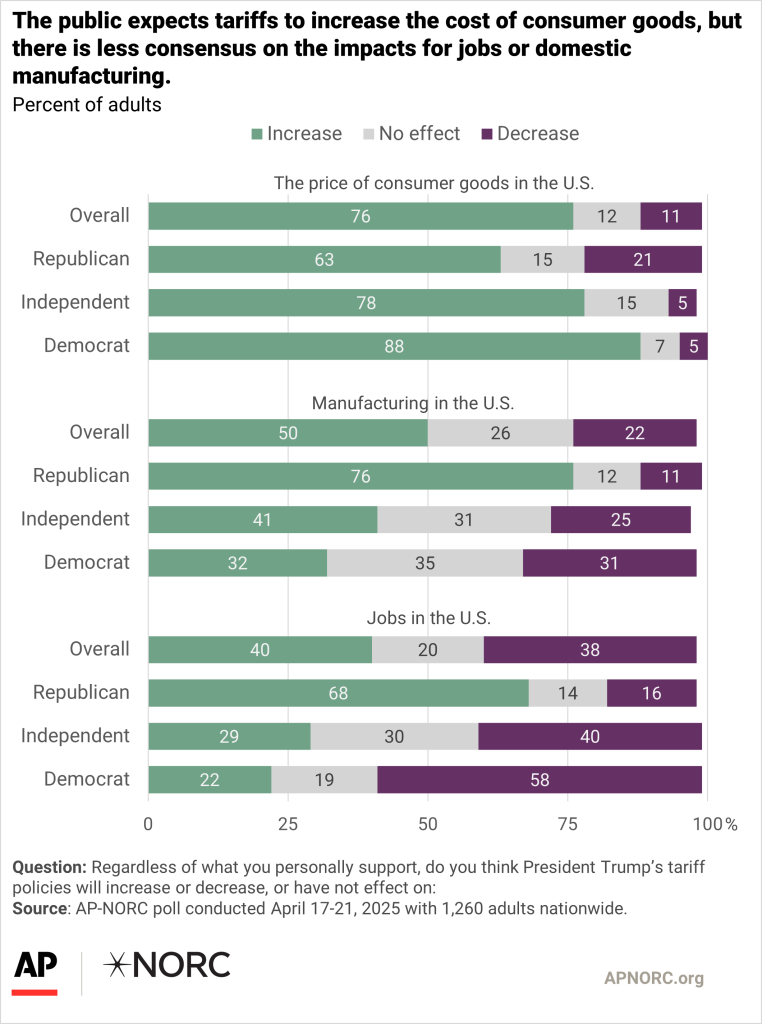
Many people are concerned about the economy in the short term. Six in 10 are worried about the cost of groceries, about half worry about a recession and prices for large consumer purchases. People are slightly less concerned about the availability of goods. Across the board, Democrats and independents are more concerned than Republicans.
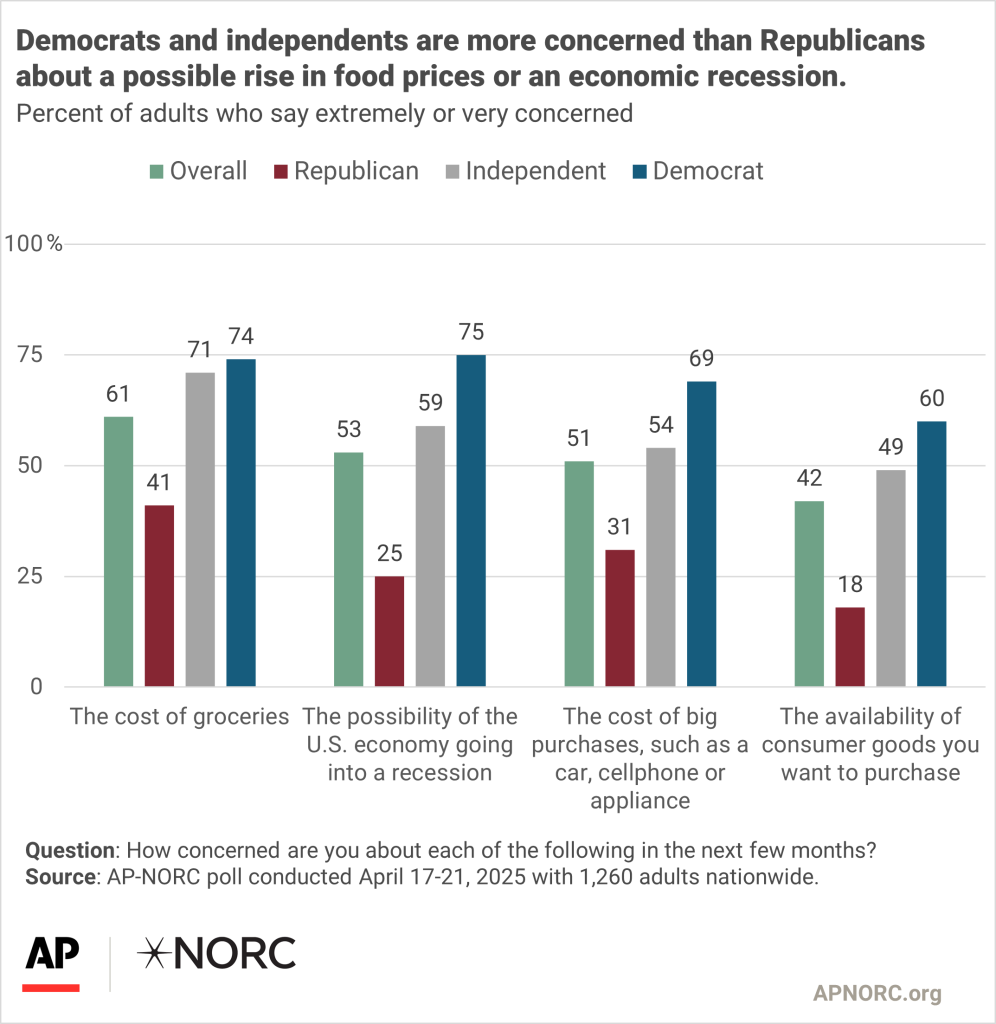
Democrats and independents report more financial stress than Republicans. For example, 52% of Democrats and 50% of independents report being majorly stressed about their personal finances compared with 34% of Republicans.
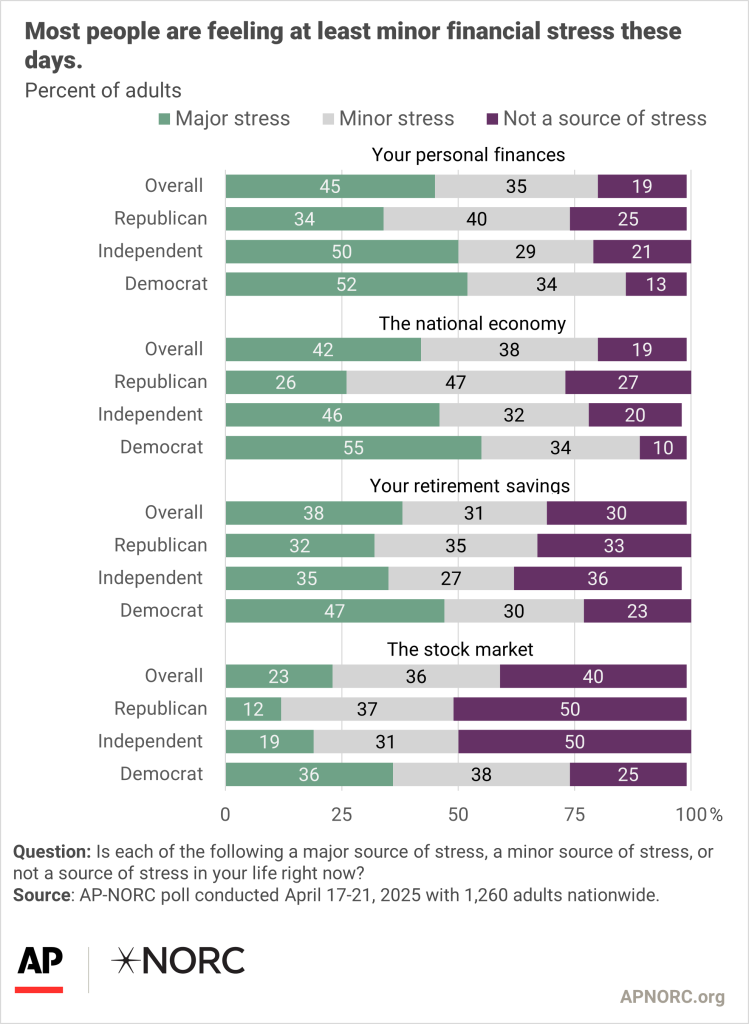
Once Trump was inaugurated, partisans’ views of the economy reversed. Last year, less than 20% of Republicans said the economy was good. Now, 58% say it’s in good shape. Similarly, when Joe Biden was in the White House, about half of Democrats described the economy in positive terms, and now only 13% say the national economy’s condition is good.
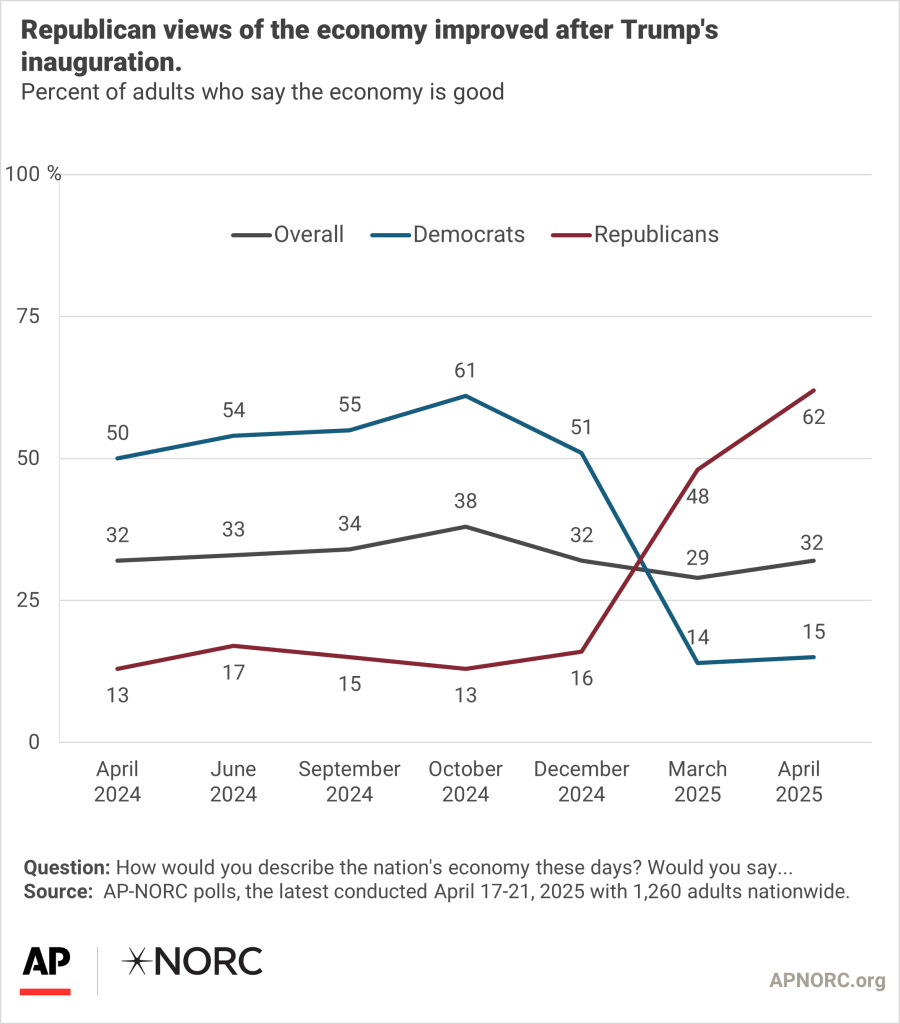
And views of Trump breakdown along partisan lines. Most Republicans approve of the president’s actions regarding the economy and trade, while Democrats have a negative view.
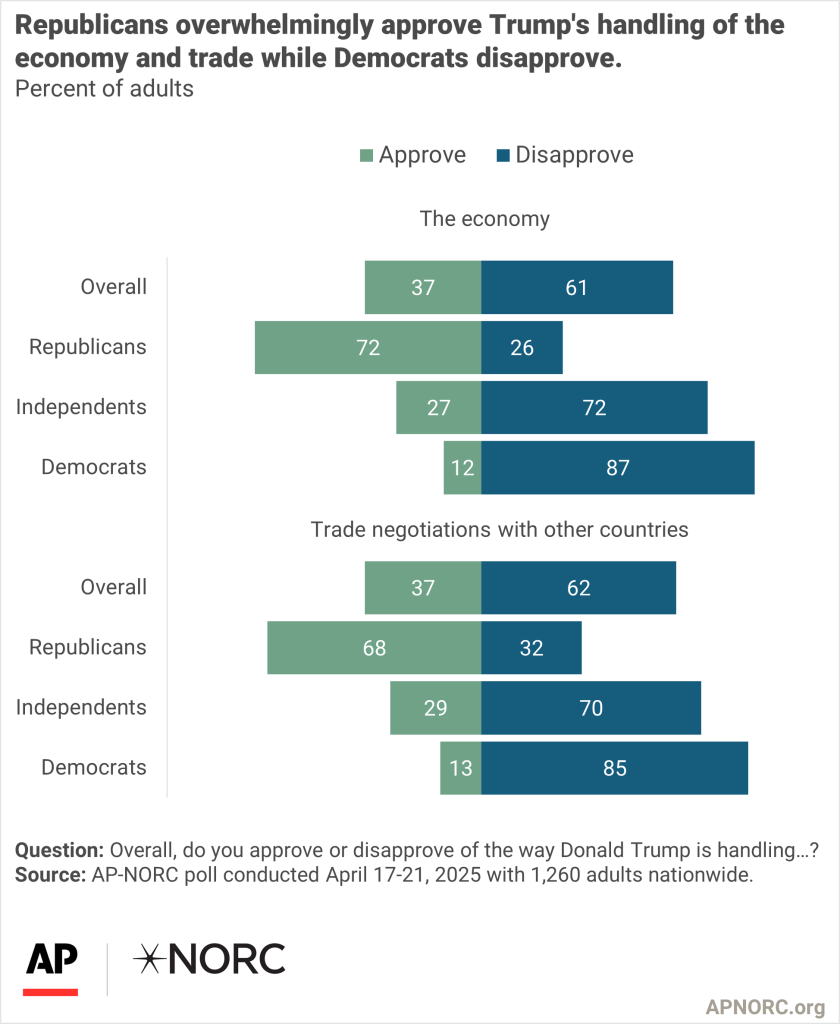
The nationwide poll was conducted April 17-21, 2025 using the AmeriSpeak® Panel, the probability-based panel of NORC at the University of Chicago. Online and telephone interviews using landlines and cell phones were conducted with 1,260 adults. The overall margin of sampling error is +/- 3.9 percentage points.
- Suggested Citation: AP-NORC Center for Public Affairs Research. “Three-quarters of the public expect tariffs to increase consumer prices” (April 2025). https://apnorc.org/projects/three-quarters-of-the-public-expect-tariffs-to-increase-consumer-prices/







